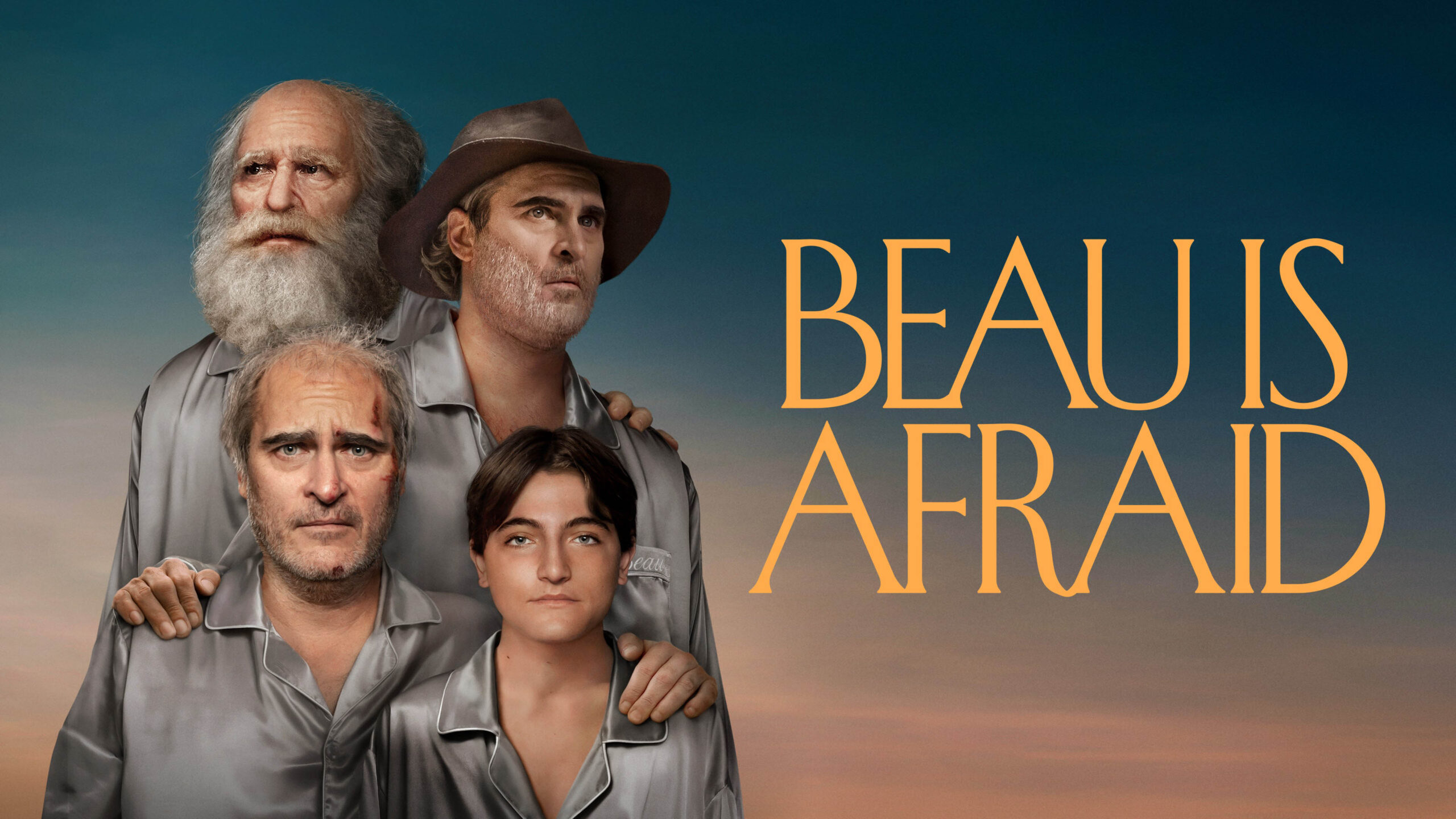
Ari Aster’s debut film, Hereditary (2018), was a staggering and unsettling experience, one that felt crafted by a seasoned veteran. Its seemingly simple premise was profoundly elevated by Aster’s masterful command of symbolism and foreshadowing, making it far more than just another demonic possession story.
His next film, Midsommar (2019), tackled a failing relationship caught in the grip of a sinister and duplicitous cult. With this follow-up, Aster cemented his status as more than a one-hit-wonder, showcasing his deft ability to weave unbearable tension from a deceptively simple story shrouded in mystery and intrigue.
Aster’s third film could be his magnum opus and his most personal film yet. This time he attempts an utterly alienating concept with a large budget, and a ridiculously long run time, melding comedy in a Kafka-esque surrealist nightmare. What is Beau afraid of? Find out in this Beau Is Afraid review!
Beau Is Afraid
Production Company: A24, Access Entertainment, Square Peg, MW Industries
Distributor: A24
Director: Ari Aster
Release Date: April 21, 2023
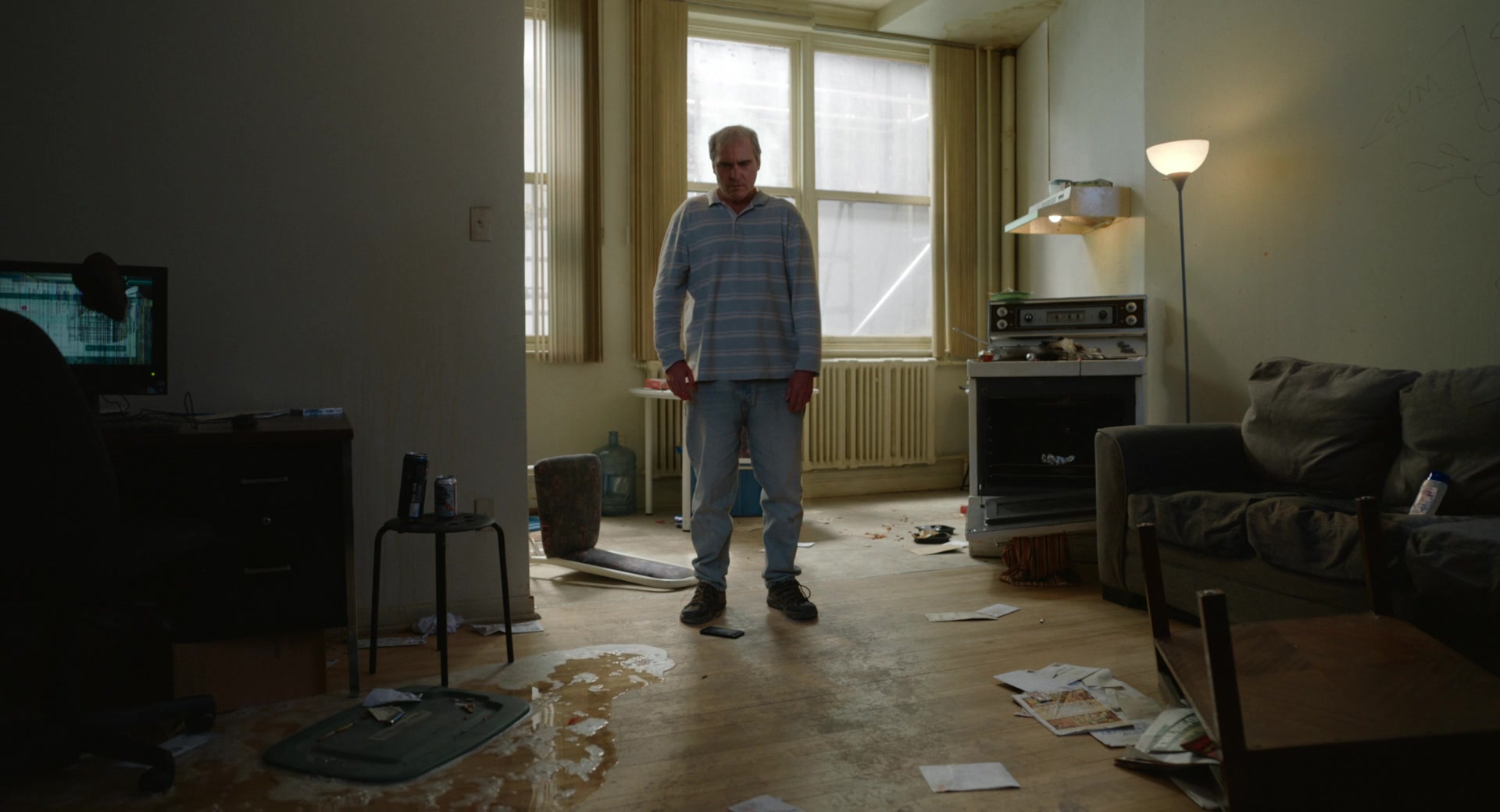
Beau Is Afraid is about a mild-mannered anxiety-stricken man named Beau Wasserman (Joaquin Phoenix) and his trip to his mother’s house that goes completely awry. The chain of events is set in motion after losing his set of keys, leading to him on a surreal quest where all his worst fears come true.
The seedy housing project he lives at is teeming with degeneracy. Everywhere you’ll see decay, graffiti, and maybe even a dirty transient, pants slathered in dry-crusted semen. Poor Beau can’t just walk home, he has to sprint to reach his apartment without letting some fecal freak sneak in.
Joaquin Phoenix masterfully portrays him with crippling and palpable anxiety. His expression is always hinting at paranoia and tension to the point that he seems like he’s on the verge of a heart attack. He speaks softly and nervously like a timid child and the weight of the years of abuse can be seen as clear as the lines all over his face.
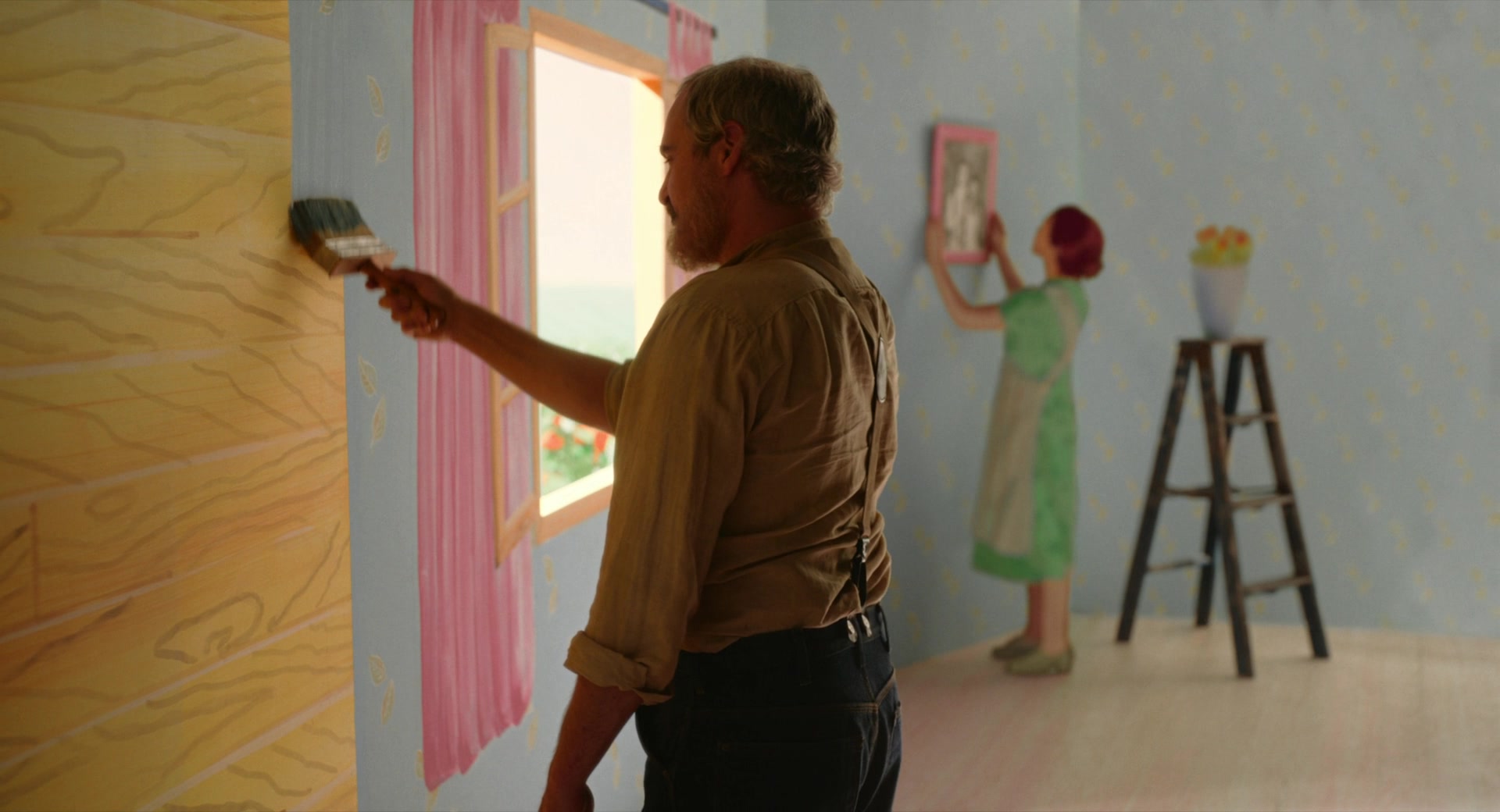
There is rarely a moment when Beau is at peace. The only respite he gets is during a vivid sequence when he attends a stage play in the middle of the woods and he projects himself into the role of the protagonist in the performance. It is here where he can imagine himself as a brave and masculine man who builds his own house and has a family.
Beau’s projection in the play suggests a desperate attempt to conform to an idealized image of masculinity that may no longer hold relevance. This highlights the pressure men feel to fit into outdated gender norms even as they lose meaning.
The core theme of Beau Is Afraid is how modernity has stripped away masculinity from men. Throughout the film, Beau is shown consuming various products that replace or suppress normal aspects of human life. His mother Mona was suffocatingly overbearing and through her conglomerate produced the products that were intended to make Beau’s life “perfectly safe”.
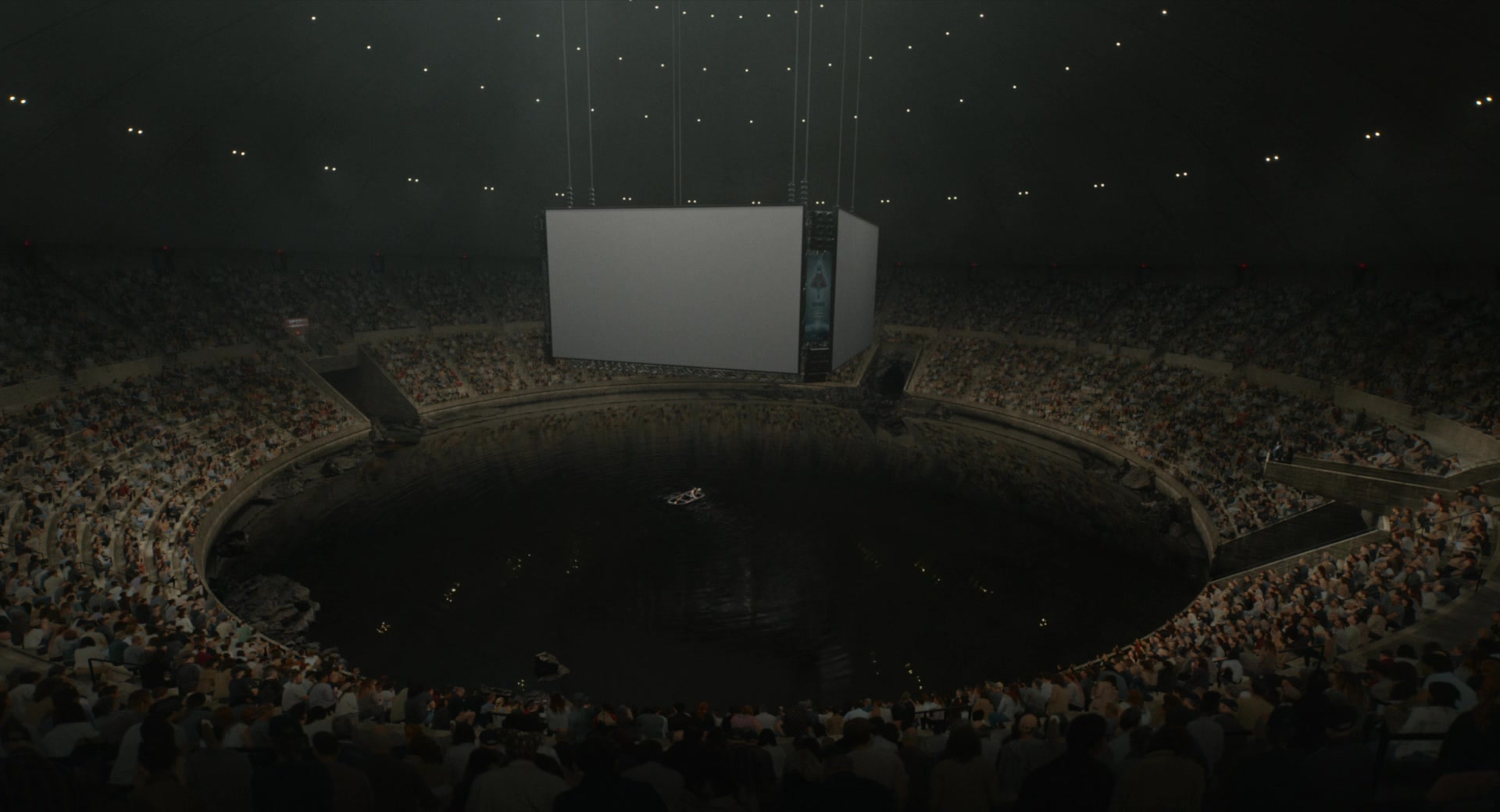
Mona, under the guise of protecting him, keeps him emotionally stunted and dependent. This smothers his ability to develop resilience, independence, and the risk-taking spirit often associated with traditional masculinity. Amusingly, the name “Mona” in Spanish-speaking countries means “to protect”.
The film is dense with enigmatic and surrealist imagery, often tightly woven with symbolic meaning. Water, in particular, takes on a complex significance throughout Beau Is Afraid, intertwining with the character of Beau’s mother, Mona.
On one hand, water evokes the life-giving nourishment and amniotic comfort of the womb, a connection underscored by Beau’s dependence on it for survival. We see this reflected in the bathtub scenes, where Beau experiences a terrifying yet strangely primal encounter with his vulnerability.
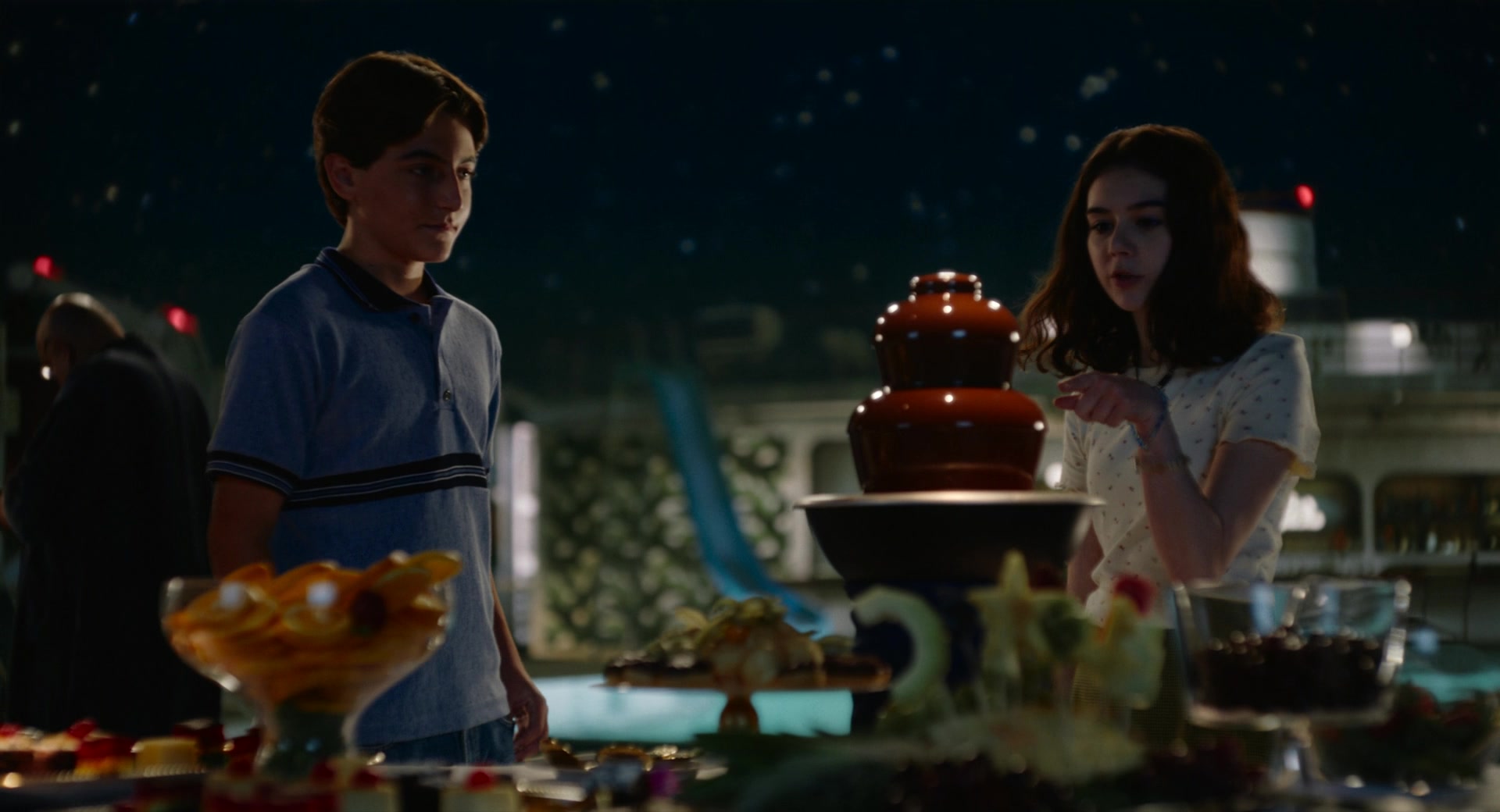
Water also carries the potential for drowning and suffocating control, mirroring Mona’s smothering presence in Beau’s life. This duality is particularly evident in the trial scene where Beau floats helplessly in a tiny boat, seemingly both embraced and trapped by his mother’s watchful gaze.
Beau Is Afraid revels in absurdity and takes full advantage of the strengths of surrealist symbolism. Some utterly outlandish sequences are as hilarious as they are frightening. The movie always keeps the viewer on edge because there is no telling what may happen. When Beau goes to the aforementioned play, there is no way the viewer would expect it to climax in a deadly and slapstick shootout.
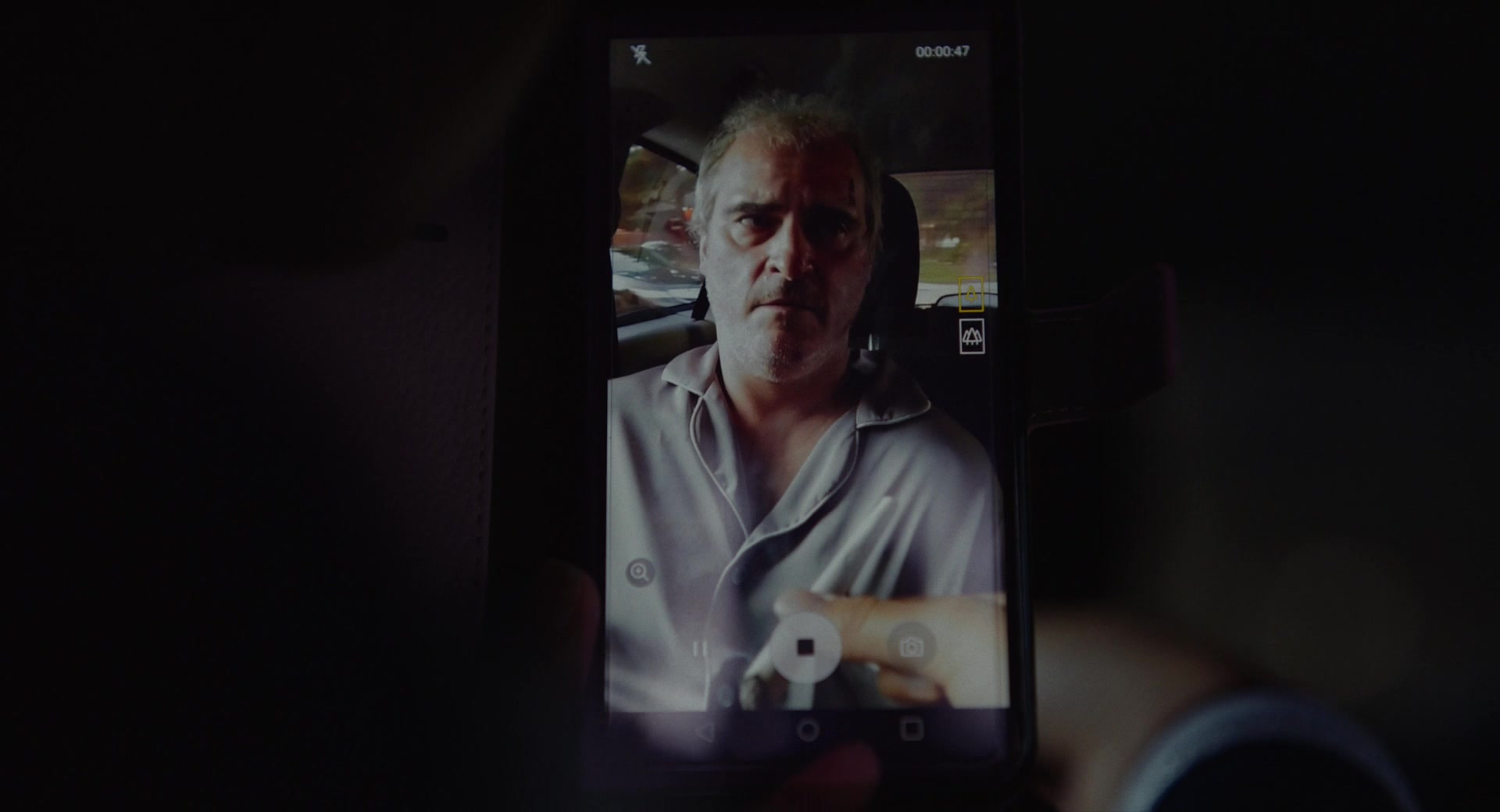
The various flashbacks feature different actors portraying the younger versions of the characters. Armen Nahapetian as young Beau has an uncanny likeness to Joaquin Phoenix that at first he could be confused as a digitally de-aged special effect.
The young actor flawlessly captures the essence of the character as carefully as Phoenix. It’s one of the most convincing illusions in the film – more believable than the gigantic CGI penis monster.
Beau Is Afraid is also a tremendously violent movie. There are some absurd deaths and scenes of brutal gore. Some characters explode into pulpy chunky bits and Beau is perpetually covered in bruises and scrapes. The effects are very convincing and make use of a mix of practical effects and CGI. You’ll be wincing and bursting into fits of laughter at the same time.
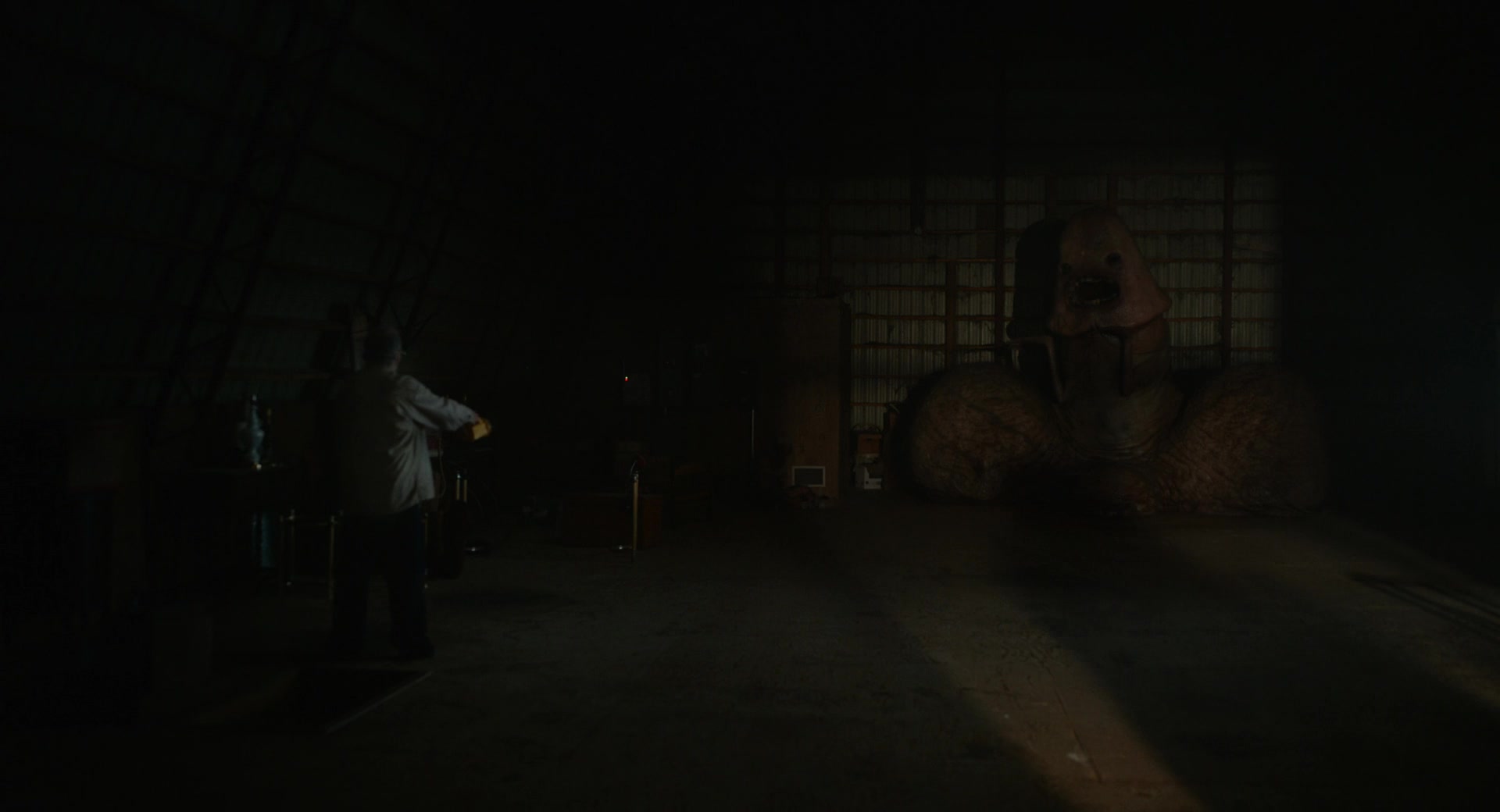
Foreshadowing and subliminals were some of the many tricks Aster used in his prior films and Beau Is Afraid takes it to unbelievable heights. Mona’s omnipresence, for instance, is subtly established in the first scene before she is physically introduced. Most viewers won’t catch it the first time around, but on a rewatch, it feels like a chilling revelation.
Throughout the film’s first act, devious hints and cheeky foreshadowings of the ending are sprinkled like breadcrumbs leading the audience down a winding, unsettling path. Every seemingly innocuous detail, from a casual conversation to a fleeting image, takes on new meaning upon revisiting.
Rewatching Beau Is Afraid becomes a treasure hunt, unearthing layers of depth and complexity that Aster has meticulously woven into the fabric of the narrative. This meticulous attention to detail culminates in a gut-wrenching climax where Mona’s true motivations are finally unveiled.
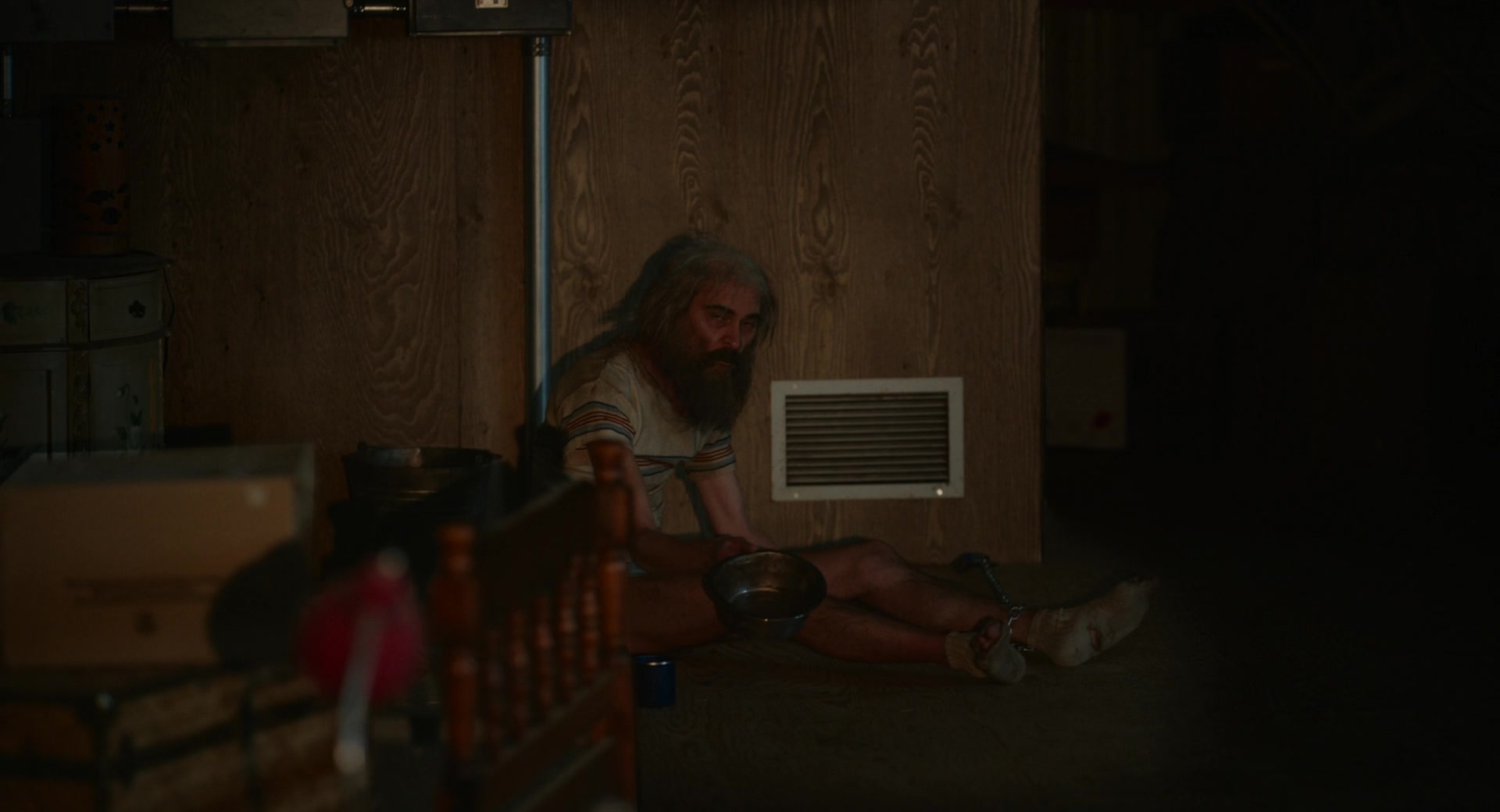
It’s a moment that recontextualizes everything that came before, solidifying Mona as not just a controlling parent, but a manipulative monster for whom “love” is a twisted, transactional affair, a cruel game her son has been forced to play his entire life. She is a businesswoman first, a monster second, and somewhere far down the list, you might find “mother” on her resume.
The extreme nature of this film will alienate general audiences. Its bizarre way of telling a simple story will undoubtedly confuse the average movie-goer and its cast of gross-looking freaks will put off anyone watching this on a date. Phoenix especially is unflattering with his hopelessly dumpy physique and believable-looking thinning hair – a far cry from his slender build when he was in Joker (2019).
While it earns its lengthy runtime, most people may not have the stamina for a harrowing Kafka-esque nightmare comedy. Beau Is Afraid is an epic quest and Aster wants the viewer to see and feel everything to fully appreciate the anxiety of the protagonist. The film is deliberately uncomfortable and distressing and it masterfully executes its premise with aplomb.
Beau Is Afraid was reviewed with a digital streaming license purchased by Niche Gamer. You can find additional information about Niche Gamer’s review/ethics policy here. Beaud Is Afraid is now available via Vudu.